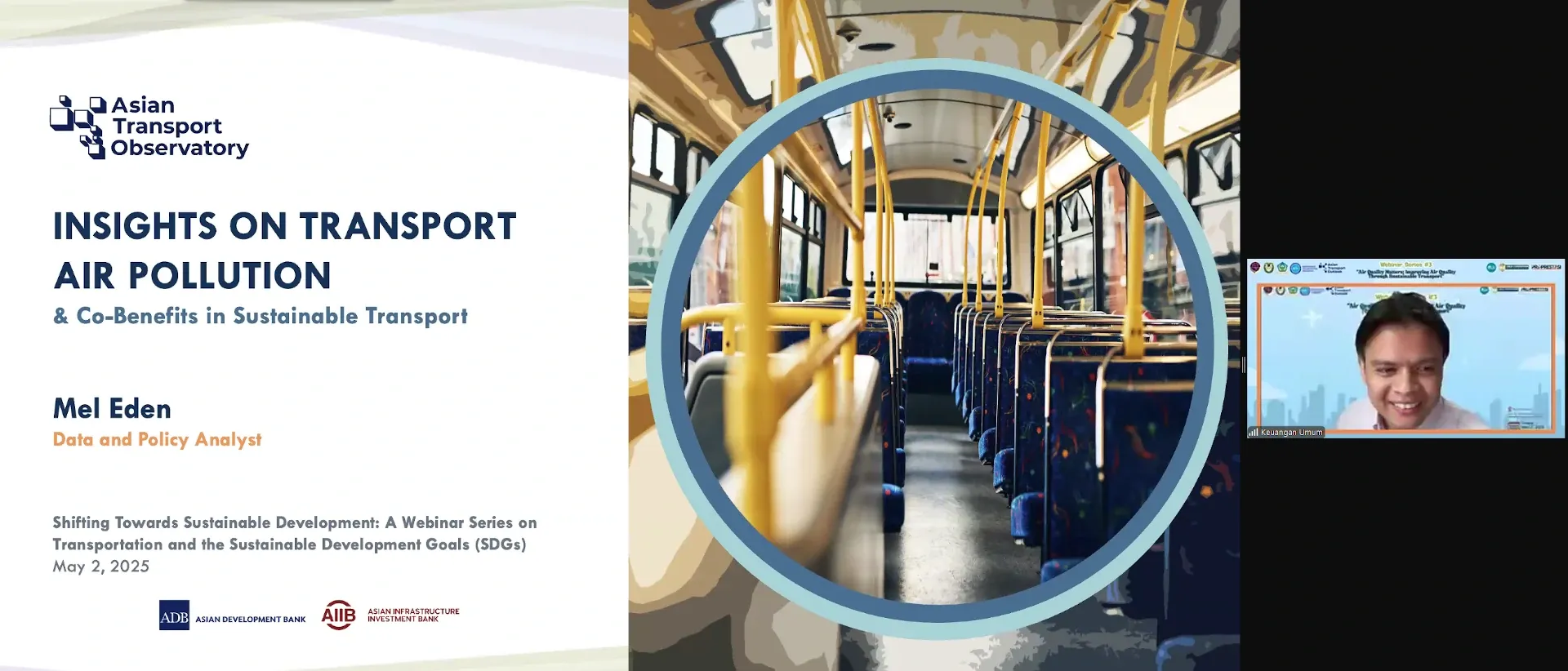ATO, PTDI-STTD, and MTI Explore the Link Between Transport and Clean Air in Indonesia

On May 2, 2025, the Politeknik Transportasi Darat Indonesia - STTD Human Resource Development Agency of Transportation, Indonesian Ministry of Transportation (PTDI-STTD) and the Masyarakat Transportasi Indonesia (MTI), in cooperation with the Asian Transport Outlook (ATO), held the third session of the "Shifting Towards Sustainable Development" webinar series. The event, hosted at PTDI-STTD and livestreamed to online participants (more than 750 participants onsite and online), focused on how sustainable transport can help improve air quality across Asia, and in Indonesia.
Mel Francis Eden, Data Analyst at ATO, opened the technical presentations with a sharp look at how transport continues to be a key contributor to air pollution, especially in rapidly urbanizing countries like Indonesia. Drawing on ATO's regional data platform, Eden showed that transport-related air pollutants like PM2.5, NOx, and SOx have been steadily rising in Asia, though with some regional differences. While vehicle emission standards and fuel improvements have helped reduce emissions in certain countries, domestic shipping and road transport remain high-emitting sources.
One standout point from Eden’s talk was the growing health burden linked to tailpipe emissions. In Indonesia alone, transport-related air pollution contributes to one premature death every hour. He stressed that this isn't just an environmental issue—it's a public health and development concern, affecting multiple SDGs including SDG 3 (Health), SDG 11 (Sustainable Cities), and SDG 13 (Climate Action).
The presentation also pointed to solutions. Using the "Avoid–Shift–Improve" framework, Eden highlighted policy examples across the region—from Singapore's vehicle quota system to Indonesia’s low-emission zone pilot programs. He also cited the success of electrified water transit in Kochi, India, and the electrification of public buses in Shenzhen as proof that well-targeted interventions can work even in growing urban contexts. His presentation file is attached below.
The webinar is part of ATO's broader support to Asia-Pacific countries in tracking their transport emissions, aligning with global climate and sustainable development goals, and translating data into actionable insights.
ATO's contribution to the webinar is also part of the MoU between ATO and MTI. This collaboration between MTI and ATO brings high-quality data and regional analysis into national dialogues—bridging policy, practice, and research. It’s also a step toward strengthening future-ready transport strategies that center health, equity, and climate in decision-making.
You may find the recording of the event through MTI’s Youtube Channel : https://www.youtube.com/watch?v=zYdiddlllGs